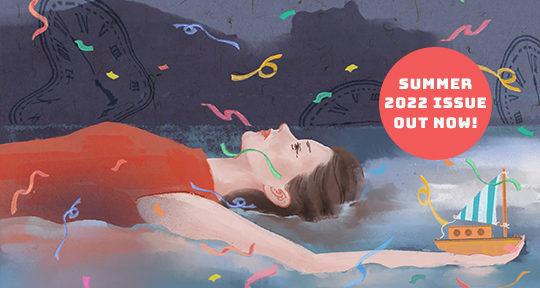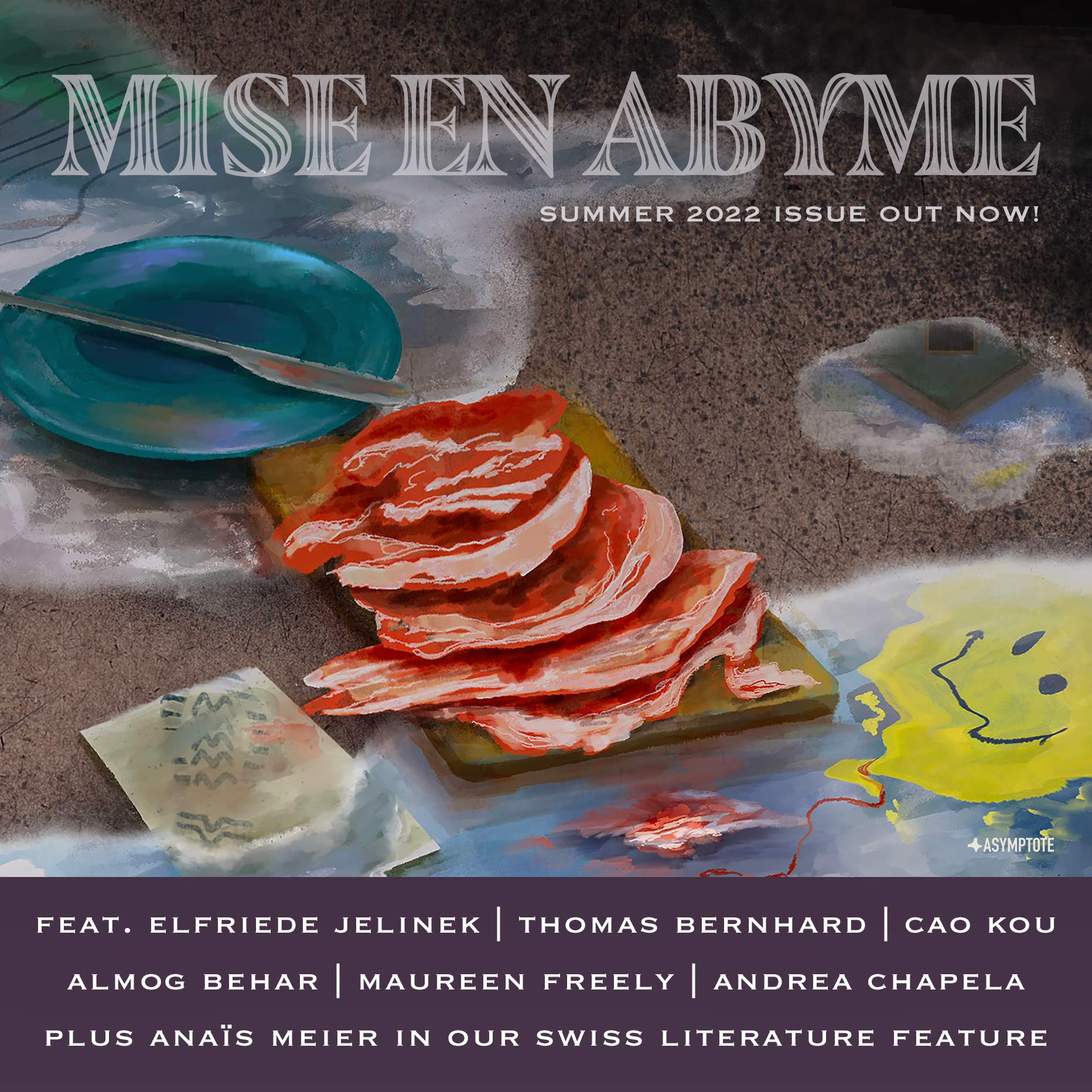You here for the party? Step this way! Bigger than any conversation pit, our newly furnished Summer 2022 edition boasts a staggering thirty-one-country capacity. From Austria, expect a darkly gossipy Elfriede Jelinek, who will be bringing along her whiny friend Thomas Bernhard (Tom doesn’t get out of his house too much, and it shows). Representing Algeria on the other hand is Habib Tengour; there he is, showing off a beloved trinket! Best known for introducing Orhan Pamuk to English readers, Maureen Freely is also in the house, regaling everyone with tales from her Istanbul childhood. In the corner, we have a cluster of French-, German-, and Italian-speaking guests huddled over a platter of cheese. One of them happens to be cheese expert Anaïs Meier, who swears by her compatriots’ rich inner lives (very much on display in the Swiss Literature Feature, sponsored by Pro Helvetia): “As a Swiss gets older, the outer rind toughens, but in their heart the cheese continues to seethe, hot and liquid.”
The game we’ll be playing tonight is Spot the Mise en Abyme! In case you don’t know the term, it literally means “placed in the abyss”; go here for examples of this mirroring literary device. How about one from the issue itself to get you started? See the Tower of Babel right there on the cover, gorgeously illustrated by Seattle-based guest artist Lu Liu? It’s picked up in the beautifully expansive poem by Almog Behar and again in the poignant nonfiction by Jimin Kang, before being reflected back in this Tower of Babel-like gathering of eighteen languages. (After all, according to Mexican essayist Andrea Chapela, “All this language is like a game of mirrors, multiplying to infinity whatever it touches.”) The guest who emails, with substantiation, the most mises en abyme—across all the texts in the new issue—by 30 August will win a prize worth USD50, along with publication in our blog.



